Table of contents
Notifications
AtroCore provides two types of notifications: system (desktop) and email notifications. You can receive notifications for various events like being mentioned in a stream, changes to records you follow, or when records are addressed to you.
Desktop notifications appear as bubbles in the upper right corner of the interface and can be viewed in detail by clicking View List in the Notifications panel.

General Settings
To enable notifications in your system, go to Administration / Settings and select the checkbox Send out notifications in the Notifications panel. Here you can also select the notification profile and email connection that will be used for sending notifications.

By default, after installing the system "Default Notification Profile" is selected as Notification Profile.
To enable email notifications, you also need to set up an SMTP connection. Go to Administration / Connections, create a new connection of type SMTP, and then select it as "Connection for E-Mail Notifications" in the Administration / Settings.
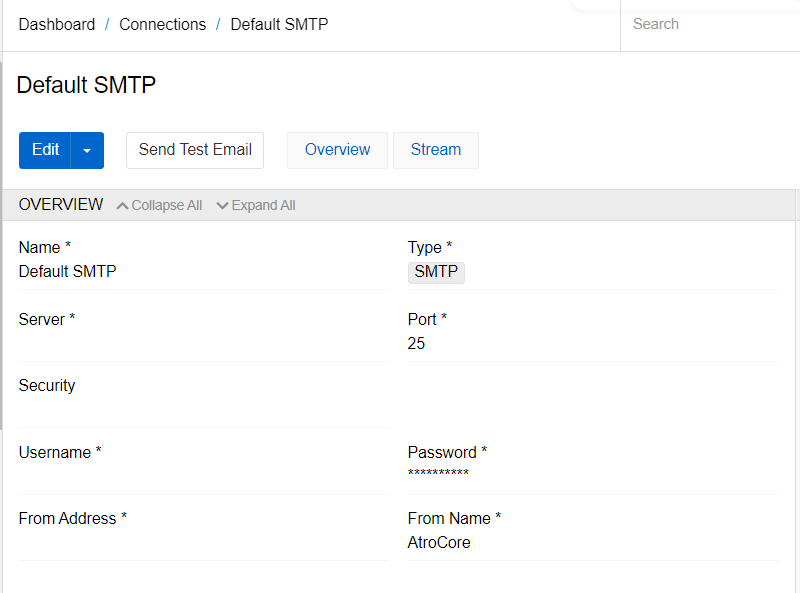
User Settings
Each user can configure their personal notification preferences in their User Profile. To access these settings, open Menu in the top-right corner and click on your username . In the Notifications panel, you can:
- Enable or disable receiving notifications by selecting the
Receive Notificationscheckbox - Choose which notification profile to use (by default, the system-wide default profile is used)

Notification Profiles
Notification Profile is a set of rules according to which different types of notifications are sent to users using predefined templates. To create a new Notification Profile go to Administration / Notification Profiles and click Create Notification Profile
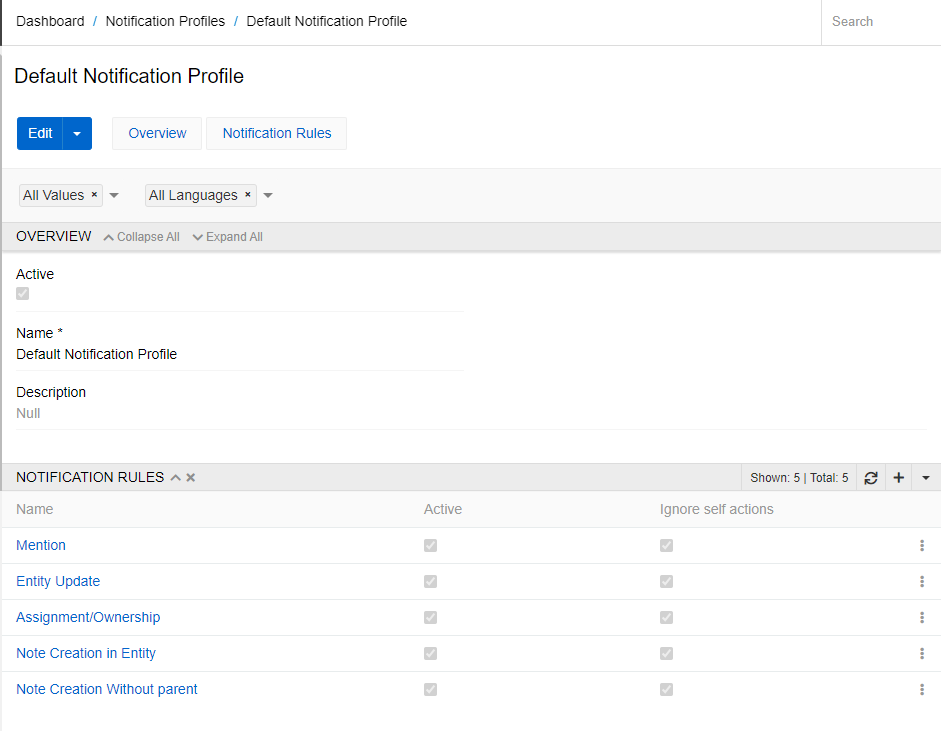
Set a name for the notification profile and activate it. If the profile is inactive, no notifications will be sent. Select notification rules from those that already exist in the system or create your own rule by clicking the "+" button
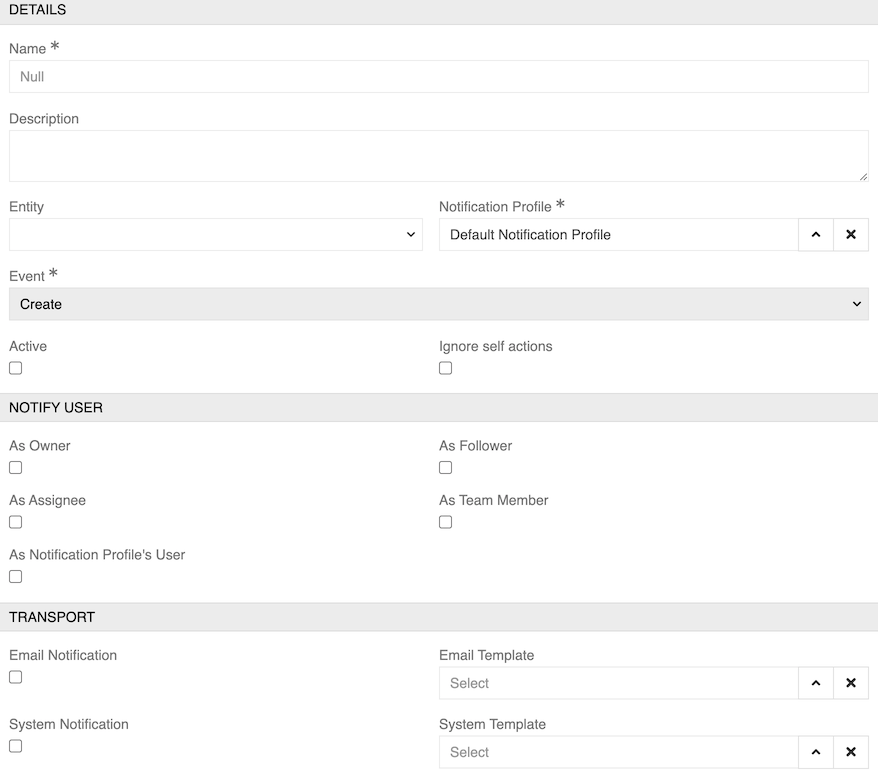
The Notification Rule comes with the following preconfigured fields, mandatory are marked with *:
| Field Name | Description |
|---|---|
| Active | Activity state of the category record |
| Name * | The Notification rule name |
| Description | The description of the rule |
| Entity | The entity to which the rule is to be applied. If the rule is system-wide, the entity field can be left empty |
| Notification Profile * | The profile to which the rule applies |
| Event * | Events that trigger the sending of notifications |
| Ignore self actions | Remove this checkbox if you do not want to receive notifications about your own actions that you perform in the system |
| Notify User | Choose which types of users should receive notifications: Owner, Assignee, Follower, Team Member, Notification Profile's User |
| Email Notification | Select the checkbox if you want to receive notifications by mail |
| System Notification | Select the checkbox if you want to receive desktop notifications |
| Email Template | Select the template for email notifications |
| System Template | Select the template for desktop notifications |
You can create multiple rules for one Notification Profile. For example, you may need this to create rules with templates in different languages. No Notifications are sent for an inactive Notification Profile. No Notifications are sent for an inactive Notification Rule.
Notification Templates
Notification Templates are used to configure how desktop notifications appear in the system. To create a new template, go to Administration / Notification Templates and click Create Notification Template.
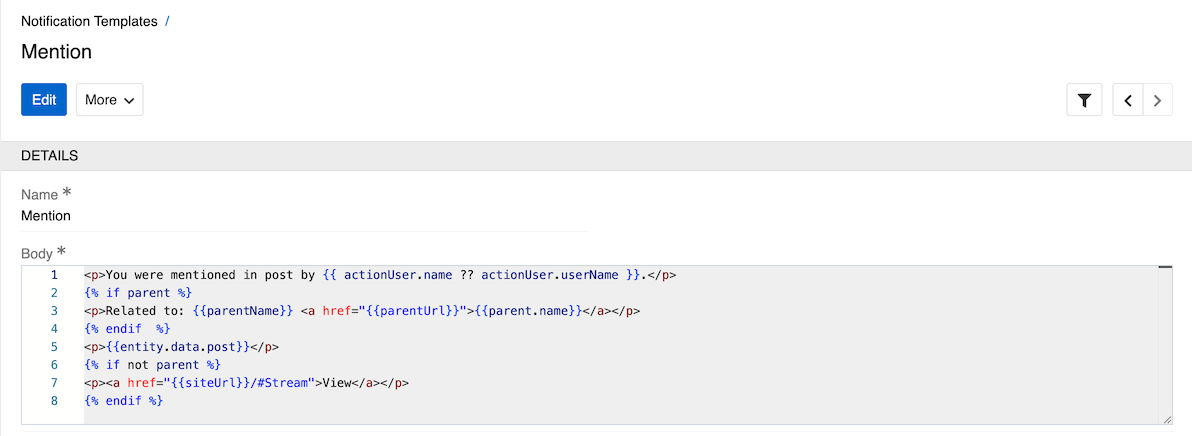
A Notification Template contains the following fields:
- Name - The name of the template (required)
- Body - The content of the notification using Twig template syntax.
Email Templates
Email Templates define the structure and content of email notifications. To create a new email template, go to Administration / Email Templates and click Create Email Template.
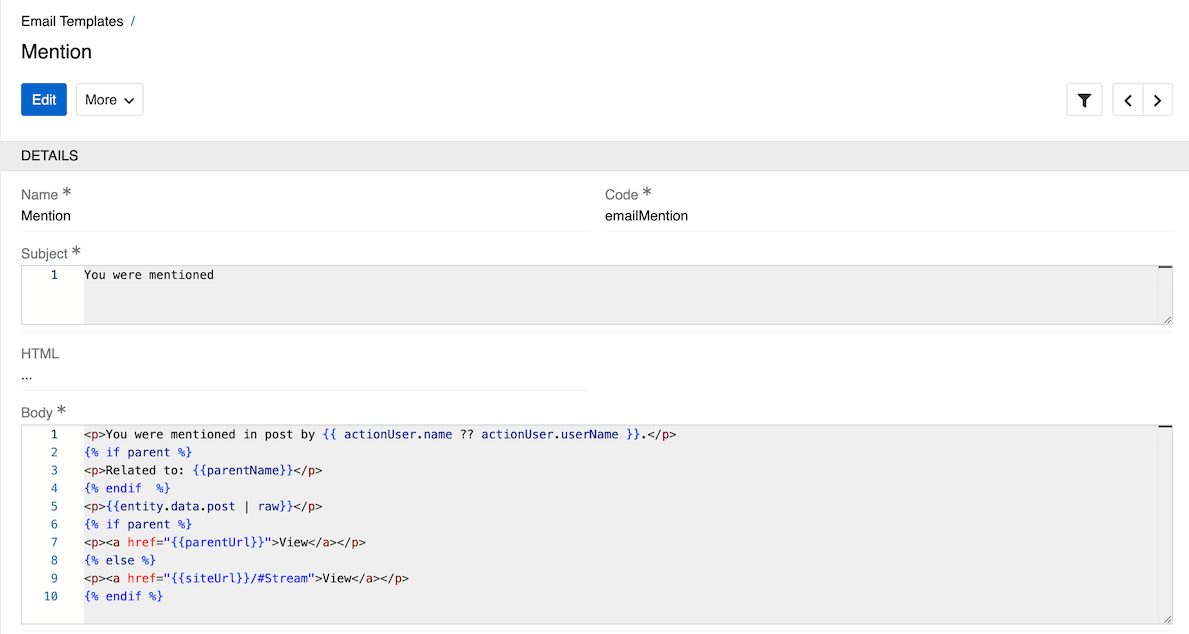
An Email Template includes:
- Name - The name of the template (required)
- Code - A unique identifier for the template (e.g., "emailMention")
- Subject - The email subject line using Twig template syntax
- HTML - Set the checkbox if you want your content to have HTML formatting
- Body - The content of the email using Twig template syntax.